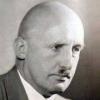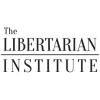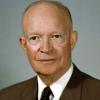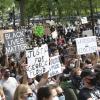Videos
-
Mark Weber with Fróði Midjord
How Did Things Get So Bad?: Explaining the Decline of America and the West
Watch video
In this two-hour session, Mark Weber and Fróði Midjord examine the factors behind the ever more obvious breakdown of American-style democracy. How did a country that was so successful for more than a century become so confused and divided? “History matters,” Weber says. The discord and disorder of today’s America are the inevitable result of policies based on the seemingly noble but fundamentally false egalitarian-universalist view of life, society and history that has guided the US for decades. No nation based on such a worldview can endure, says Weber. He also speaks about the crucial Jewish role in shaping the cultural, intellectual, social and political life of modern America.
-
Mark Weber with Fróði Midjord
‘Breaker Morant’: An Australian Look at the Anglo-Boer War
Watch video
Mark Weber joins host Fróði Midjord to talk about “Breaker Morant,” an Australian film that dramatizes an episode of the Anglo-Boer War of 1899-1902. Australians who had been serving with British forces against guerilla fighters in southern Africa are brought before a British military court on charges of murdering enemy prisoners and an unarmed civilian. This 1980 film alternates between the taut drama in the courtroom and flashbacks that bring the story together, with a moving conclusion as the court’s sentence is carried out. The film raises crucial questions about “justice” in wartime, of “legal” behavior by soldiers in combat, and of the ethics of war itself. Weber also talks about how British imperialists and businessmen, together with Jewish financiers and “gold bugs,” engineered the conflict. Runtime: 71 mins.
-
Mark Weber with Fróði Midjord
Realistic Perspective on World War II, and the Conflict’s Importance for Our Age
Watch video
Mark Weber and Fróði Midjord examine and dissect a range of widely accepted myths about the devastating global conflict of 1939-1945. Runtime: 133 mins. They discuss how the war’s outcome decisively shaped today’s America and Europe. They show that the conflict was not, as we’re told, a clear-cut battle between Good and Evil. The two also discuss Churchill, Hitler and ‘The Unnecessary War’: How Britain Lost Its Empire and the West Lost the World, by Patrick J. Buchanan. This readable and well researched book by one of America’s most astute and influential public affairs commentators is a bold and persuasive debunking of the “official” story of the origins and trajectory of WW2. It’s also a devastating critique of the “cult” image of Winston Churchill.
-
Mark Weber with Fróði Midjord
Zionism, the Nuremberg Trials, and Julius Streicher’s Anti-Jewish Weekly
Watch video
Mark Weber joins host Fróði Midjord in this lively “Guide to Kulchur” session. It begins with a discussion of how and why “the Jewish question” played such an important role in Europe in the first half of the twentieth century, and why it remains relevant today. Weber speaks about Zionism, and why this influential Jewish nationalist ideology is important – for both Jews and non-Jews. Much of the session deal with Julius Streicher, publisher of the notorious anti-Jewish weekly, “Der Stürmer.” Weber makes a number of striking observations about the Jewish role in prewar Third Reich Germany. He also discusses the Nuremberg “International Military Tribunal” established by the victorious Allied powers in the aftermath of World War II. The Tribunal sentenced Streicher to death. Runtime: one hour, 45 mins.
-
Mark Weber with Fróði Midjord
The Great Gatsby: What a Great Novel Says About America
Watch video
Mark Weber joins host Fróði Midjord in this probing look at one of the most influential and enduring of American novels. Although its story is set in the 1920’s “Jazz Age,” The Great Gatsby is uncannily relevant for our age. In this episode of the “Guide to Kulcher” series, Weber explains why F. Scott Fitzgerald’s masterpiece is not only a brilliant and elegantly crafted work of literature, it’s also important for what it says about American society and the trajectory of American history. Runtime: 85 mins. Many more people are familiar with film versions than with the book, especially the glittery, sprawling adaptation starring Leonardo DiCaprio, and the mellower version starring Robert Redford and Mia Farrow. But these screen adaptations fail to convey the novel’s deeper social-cultural message.
-
Mark Weber with Fróði Midjord
Seeds of Destruction: How America Lost its Identity
Watch video
Over the past 80 years, Americans have abandoned the once universally accepted view of the US as a white republic with a Western culture to instead accept and then embrace an identity as a culturally diverse, multi-racial and ideologically universalist society. In this 90-minute “Guide to Kulchur” session, Mark Weber and host Fróði Midjord take a probing look at how and why the US national identity has so drastically changed. They discuss the long-term impact of the strongly individualistic outlook of Americans, which puts personal and family interests ahead of the long-term interests of the community and nation. This widely accepted focus on “what’s in it for me” has made it difficult, and perhaps impossible, to sustain a coherent cultural or racial identity.
-
Libertarian Institute
Historical Revisionism: The World Wars, Israel, and The Gulf of Tonkin
Watch video
Mark Weber joins host Keith Knight of The Libertarian Institute in this two-hour session to talk about “historical revisionism,” why history matters, and a range of specific historical topics of relevance for our times. The IHR director speaks with Knight about the origins of the First World War, Israel’s attack on a US Navy ship, the USS Liberty, the Vietnam War and the “Gulf of Tonkin” resolution, and more. The two also discuss the outlook and role of Murray Rothbard, the influential libertarian scholar.
-
Mark Weber with Fróði Midjord
A New Look at ‘Stalin’s War,’ and Why World War II Still Matters
Watch video
In this 100-minute “Guide to Kulchur” session, Mark Weber and host Fróði Midjord discuss Stalin’s War, an important new book (2021) that dismantles the widely accepted “official” view of World War II. In this 825-page work, US historian Sean McMeekin shows that the conflict that engulfed Europe in 1939-1940 is one that Stalin wanted, not Hitler. Stalin had already struck against six countries, and had built an enormous air, land and naval force for further aggression, when German and German-allied forces struck against the USSR. McMeekin also shows how President Roosevelt’s delusional view of the Soviet regime drove policies that brought oppression and misery to many millions. Massive US military and economic aid to the beleaguered Stalinist regime, McMeekin details, did much to rescue the Soviet empire. Weber explains how World War II has profoundly shaped how Americans think of themselves and their country’s role in the world.
-
Mark Weber
Religion and Christianity in Hitler’s Germany
Watch video
Much of what’s written about the role of Christianity in Third Reich Germany, and about Hitler’s views on religion, is grossly distorted or just plain wrong. The official program of Hitler’s National Socialist Party expressed support for “positive Christianity, and nearly all NS Party members were either Evangelical Lutherans or Roman Catholics. Although Christianity had a favored status in the Third Reich, Germans were free to profess any religious outlook, or none. In many public statements Hitler affirmed a religious and spiritual outlook, and expressed admiration for Christian ethics and traditions. But privately he grew steadily more critical of the Christian worldview. Runtime: 50:44 mins.
-
Wayne Morse
Sen. Morse Denounces 1964 ‘Tonkin Gulf’ War Resolution
Watch video
Senator Wayne Morse was one of only two members of Congress to vote against the fateful Gulf of Tonkin resolution of August 1964, which gave President Lyndon Johnson blank check authority to wage war against North Vietnam. This authorization, warned Sen. Morse, was unconstitutional. Moreover, it was later established that the alleged North Vietnamese attack against US warships, which the White House cited to justify the sweeping resolution, either never took place, or had been greatly exaggerated. Runtime: 35 secs.
-
Robert Faurisson
Germans Punished in World War II for Mistreating Jews
Watch video
With flair and exactitude, a French professor and European revisionist scholar presents numerous specific examples of punishment during the Second World War, of Germans, by German authorities, for killing or mistreating Jews. Such cases are, of course, difficult to reconcile with the familiar Holocaust extermination narrative. From the 14th IHR Conference, 2002. Runtime: 56 mins.
-
Mark Weber
Christian Zionism
Watch video
The fundamentalist and evangelical Protestant Christians in the US who fervently embrace Israel are the single most important block of non-Jewish American supporters of the Zionist state and its policies. But few of these “Christian Zionists” realize just what an odd minority they are among the world’s Christians, and how out of step their views are with traditional Christian principles. Christian Zionists reject the ethical values of Jesus as laid out in the Gospels, and betray fellow Christians in Palestine who are victims of Israeli dispossession and oppression.
-
Dwight Eisenhower
A President’s Prophetic Warning: The ‘Military-Industrial Complex’
Watch video
At the end of his eight years as president, Dwight Eisenhower spoke to Americans in a farewell address. In the most prophetic and often quoted portion of his address — broadcast on national television on Jan. 17, 1961 — he warned about the influence and grave potential danger of the “military-industrial complex.” Excerpt. Runtime: 2:30 mins. “In the councils of government,’ he said, “we must guard against the acquisition of unwarranted influence, whether sought or unsought, by the military-industrial complex. The potential for the disastrous rise of misplaced power exists and will persist.”
-
Viktor Suvorov
Who Started World War II?
Watch video
A Russian historian and former Soviet military intelligence presents evidence to show that the German attack against the Soviet Union in June 1941 was a preventive strike to counter an imminent Soviet assault against Germany and Europe. Viktor Suvorov (Vladimir Rezun) explains why Soviet dictator Stalin should be considered the “chief culprit” of World War II. This 50-minute lecture, given at the U.S. Naval Academy in October 2009, is based on years of research for several books. Stalin aligned the Soviet Union with Third Reich Germany from August 1939 to June 1941 because he planned and expected that Germany and other European countries would soon exhaust themselves in destructive war, thereby enabling Soviet forces to then overwhelm and sweep across a weakened continent.
-
Press TV
American Lawmakers Must Pledge to Support Israel or Risk Funding, Says Former US Member of Congress
Watch video
Former US lawmaker Cynthia McKinney says every candidate for Congress must pledge to support Israel’s military superiority in the region and continued large-scale US funding for the Zionist state, or risk losing the ability to raise funds for election campaigns. “If you don’t sign the pledge, you don’t get money,” she says in this interview with Marzieh Hashemi, an American-born journalist who lives in Iran. “You make a commitment that you would vote to support the military superiority of Israel, that the economic assistance that Israel wants, that you would vote to provide that,” she adds. If a candidate does not sign the pledge or perform accordingly, “then you do not get money to run your campaign,” McKinney says. After she made the pledge public, she says, the tactic changed, but the basic requirement remained. Runtime: 9:51 mins.
-
Institute for Historical Review
Our Mission and Record
Watch video
In this five-minute presentation, IHR director Mark Weber explains the Institute’s mission and record. “We strive to provide factual information and sound perspective on US foreign policy, World War Two, the Israel-Palestine conflict, Middle East history, the Jewish-Zionist role in cultural and political life, the ‘Holocaust’ remembrance campaign, war propaganda, and much more.” The IHR, is also explains, is an “independent educational center and publisher that works to promote peace, understanding and justice through greater public awareness of the past, and especially socially-politically relevant aspects of modern history.”
-
Mark Weber
Lies and Deceit In American Film Propaganda
Watch video
Decades of deceitful motion pictures have done much to produce a misinformed and compliant American public. A notable example of such film deceit is “Mission to Moscow,” a major Hollywood production made with White House backing, that portrays Soviet dictator Stalin and the Soviet Russian regime as benevlolent, peace-loving and trustworthy. Another good example is the “Why We Fight” series of documentary-style films produced by the US War Department, which have been viewed by millions. Made during World War II, these seven films use staged scenes and fake quotations to present a grossly distorted view of history and the world.
-
Tony Martin
Tactics of Organized Jewry in Suppressing Free Speech
Watch video
In this memorable, hard-hitting address at an IHR conference in Irvine, California, Dr. Tony Martin examines Jewish tactics in suppressing freedom of speech. He takes a closely reasoned look at the techniques used by Jewish groups to marginalize, discredit and silence those whom they regard as harmful to their interests. He cites numerous specific examples, including outright lying and misrepresentation, use of ad hominin and “straw man” arguments, and arranging for pliant stooges to front for Jewish groups. Runtime: 58 mins. Martin authored or compiled/ edited eleven books, and was for years a professor of African studies at Wellesley College. He came under tremendous attack from organized Jewry in 1993 because he had included a book on the Jewish role in the trans-Atlantic slave trade in a course he was teaching. Runtime: 57:27 mins.
-
Institute for Historical Review
John Toland on ‘Living History’
Watch video
A fascinating, insightful and inspiring talk by a great American historian. Among John Toland’s outstanding works was The Rising Sun, which earned a Pulitzer Prize, and a best-selling biography, Adolf Hitler. In this lecture at an IHR conference, he looks back at the experiences that made him an acclaimed author. He recalls, for example, his youthful travels across the country on rail freight cars, and his life-long love of the theater. Throughout his decades-long quest for objectivity and non-partisanship in writing real, “living” history, Toland says, he tried to present the past as a dramatic saga of human nobility, defect, triumph, foible, suffering and joy. He humorously relates how he was denounced as a “Nazi” for his efforts to write objectivity, and with understanding, about Hitler and Third Reich Germany.
-
Mark Weber with Fróði Midjord
Massive ‘Anti-Racism’ Protests Across the US Signal Accelerating American Discord, Confusion and Decline
Watch video
Mark Weber joins host Fróði Midjord to talk about the significance of the violent unrest, arson and looting in major US cities in May and June 2020, and the massive “anti-racism” protest rallies across the country. Runtime: 105 minutes. In solidarity with the “Black Lives Matter” movement, many white Americans joined rallies to demand “racial equality.” The frustration, passion and rage behind these protests, as well as the violence and looting, are entirely understandable, says Weber, given the policies and rhetoric of “white America” for more than 50 years. The protesters are demanding the fulfillment of countless pledges by US officials to end racial disparity and finally achieve an egalitarian, “color-blind” society. For decades, political leaders of both major parties, with eager backing from educators, Hollywood and the mainstream media, have told us that white America is collectively responsible for racial inequality in US society. Politicians of both parties, including Presidents, have also repeatedly pledged to end that disparity and make an egalitarian, “color-blind” America.